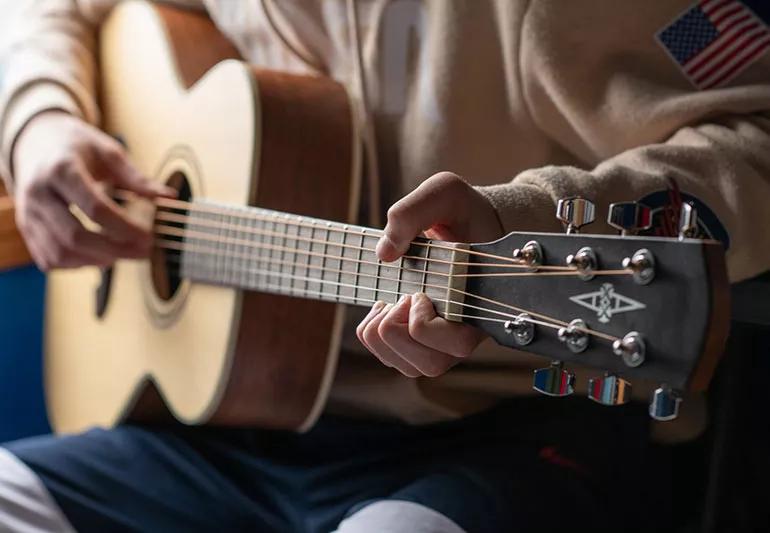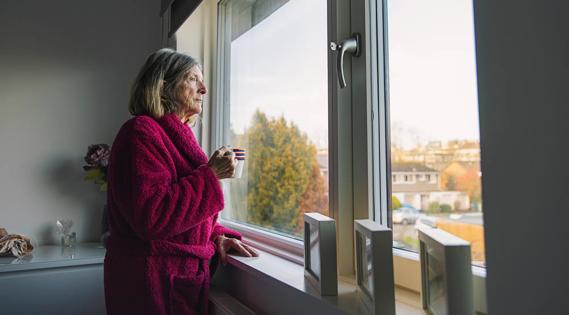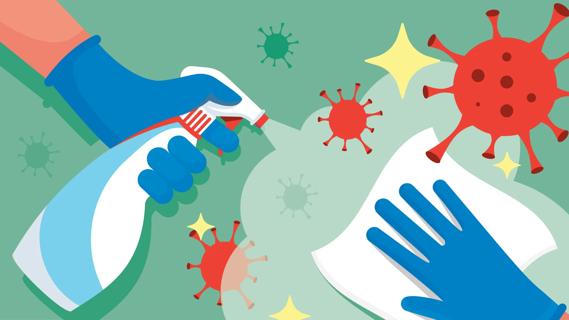Advertisement
Ways you can keep life interesting while stuck at home

You’ve been stuck inside for days … weeks … years? Time can seem meaningless in the age of COVID-19 and sheltering in place. And the term “cabin fever” sounds altogether too quaint to describe your serious case of stir-craziness.
Advertisement
Cleveland Clinic is a non-profit academic medical center. Advertising on our site helps support our mission. We do not endorse non-Cleveland Clinic products or services. Policy
You’re not alone. “Across the globe, people are self-isolating to prevent the spread of the novel coronavirus,” says clinical psychologist Scott Bea, PsyD. “It can help to remember that literally billions of other people are in the same boat.”
If that doesn’t take the edge off, Dr. Bea offers these tips might help relieve some of your pent-up cabin fever.
No, it probably won’t look exactly like your pre-coronavirus routine (especially if you’re now pulling double-duty as a work-from-home parent). But Dr. Bea says consistent routines can ease anxiety and help shush the nagging voice in your head that keeps whispering, “What am I going to do?!?”
Add these healthy habits to your regular schedule:
Advertisement
Novelty is the opposite of boredom, Dr. Bea notes. Try something totally original — or just do the regular things in fresh new ways.
Loneliness and social isolation contribute to mental and physical health problems, from depression and sleep troubles to heart problems and dementia, Dr. Bea says. But you don’t have to be shoulder-to-shoulder with someone to reap the benefits of connection.
In the age of social distancing, use virtual connections to fill the gap:
There’s a lot of overlap between cabin fever and an anxious, racing brain. Find soothing ways to peace out:
Days at home can feel aimless, Dr. Bea acknowledges. But solving a problem or meeting a professional challenge can give you a sense of accomplishment and satisfaction:
Advertisement
Some of these tips — like eating right, exercising, getting enough sleep, staying connected — are good for all of us. But, Dr. Bea says not everyone needs to stay super-busy to avoid going stir-crazy. Some of us are already stretched thin. (“I’m supposed to find time to learn Mandarin while working, home-schooling and feeding everyone all day??”)
“There’s no shame in curling up with a good book or just going to bed an hour earlier,” Dr. Bea says. “After all, there is no blueprint for this. We’re all making it up as we go, so find the cabin-fever strategies that work for you.”
Advertisement
Learn more about our editorial process.
Advertisement

Studies have shown promising results, but additional research is needed

Infection and inflammation can cause you to lose your voice and have other voice changes until you’re fully healed

A COVID-19 infection can bring on depression or anxiety months after physical symptoms go away

Just like the flu, COVID-19 continues to evolve every year with new and smarter variants

The latest omicron subvariants carry specific mutations that may allow the SARS-CoV-2 virus to be better at evading immune protection

You can work out with mild COVID-19, but not in a gym, and listen to your body and don’t overdo it

Most people can return to work and regular life when they’re symptom-free for 24 hours

Lysol Disinfecting Wipes are just one of more than 500 products approved by the EPA for protection against the SARS-CoV-2 virus that causes COVID-19

If you’re feeling short of breath, sleep can be tough — propping yourself up or sleeping on your side may help

If you fear the unknown or find yourself needing reassurance often, you may identify with this attachment style

If you’re looking to boost your gut health, it’s better to get fiber from whole foods